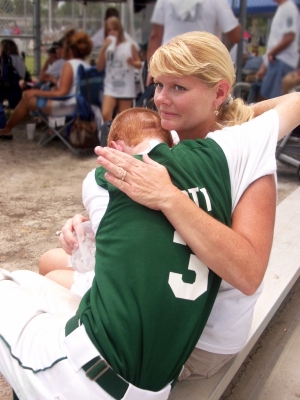 In order for athletes to excel in competition and tap into “the zone” they must be in control of their emotions, and remain in control after mistakes or setback.
In order for athletes to excel in competition and tap into “the zone” they must be in control of their emotions, and remain in control after mistakes or setback.
Composed athletes have the ability to remain calm, persistent, and in control under pressure situations or after mistakes. These athletes are “gamers” who thrive under competitive pressure and are able to raise their level of performance during competition. They have the ability to quickly let go of errors and control their emotions after setback or committing a mistake such as Kobe Bryant, Cristiano Ronaldo, Rafael Nadal, and Roy Halladay.
Of course the best athletes in the world get upset by mistakes, however, these athletes do not dwell on past mistakes or let mistakes through them off their game. They don’t linger on frustration or lose focus which helps them perform at the top of their game consistently.
Some people think that either you have composure or you don’t, and that you can’t change this. For example, they believe that if you are a Type A personality you can’t change the fact that you become anxious in competition. This is simply false. Athletes can learn the mental strategies that will give them a greater sense of inner composure and confidence that will enable you to perform at your peak every time you are in competition!
Below are the common mental game challenges the effect composure include:
- perfectionism
- irrational beliefs
- behavior or wanting to show others you are better
- worry about what others think
- fear of failure
Sports psychology and mental training programs on composure help athletes:
- Think calmly and rationally when under competitive stress.
- React calmly and rationally to errors during competition.
- Rise to the challenge with confidence when called upon or as needed.
- Identify and quickly extinguish mental barriers that undermine composure and cheat you from peak performance.
- Want the ball in pressure situations with the belief that there is no better person to win than you.
To learn mental game tips on how to improve composure in sports visit Mental Edge Athletics
Or
Read more articles on composure in sports at Sport Psychology Today


























As a father of 2, and a youth sports coach, I’m alarmed by the lack of emotional control many of our youth athletes display. Of course children will sometimes react poorly to what happens in a game, but right there in that moment is the coaches’ opportunity to prepare their players for real life.
I have observed countless outbursts and episodes of self-pity in my years on the baseball field and basketball court; players striking out and throwing their bat or helmet, teammates yelling at one another for making mistakes, a shooter celebrating their 3-pointer and forgetting to play defense, players missing opportunities to succeed because they are focused on what they feel was a bad call 5 minutes ago, children so overwhelmed by failure they are brought to tears and are unable to focus on their next task.
As coaches, we have an obligation to teach these children how to deal with success and failure. Preparing them to be balanced, contributing members of society is a far more important task than teaching them how to hit a baseball.
If a player is struggling with their emotions, remove them from the game until they regain their focus and control of their emotions. After they are able to process what’s taken place, they can return to the game as a better player and person, hopefully with new coping mechanisms. Allowing them to remain in the game is a disservice to the player and their teammates. We can’t change what already happened, and you can’t help your team in the moment if you’re focused on the past.
Most of us sign our children up for sports to have fun. I think we would all agree that it’s a lot easier to have fun when everybody around us is upbeat. As coaches, we have the opportunity create an upbeat environment. If we reach that goal when our children compete, we have won, regardless of the score.
Darryl Ware
New Fairfield, CT